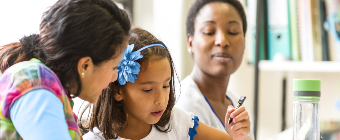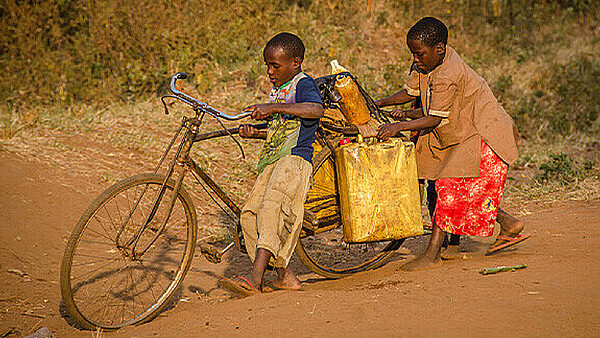The Internationaler Bund (IB) takes a clear stance against child labor and calls for stronger measures to protect children's rights. The occasion is the World Day Against Child Labor on July 12.
A recent report by UNICEF and the International Labour Organization (ILO) makes one thing clear: the goal has not been met. Despite a reduction in global child labor since 2020, an alarming 138 million children—mostly boys, but also many girls—are still affected.
According to the UN Sustainable Development Goals SDG, child labor was to be eradicated by 2025. However, ILO estimates show that nearly 40 percent of all working children between the ages of 5 and 17 are employed under conditions that violate their rights and endanger their health and development.
Child labor occurs most frequently in agriculture (61 percent), followed by domestic work. About 13 percent of affected children work in industrial sectors, including mining and goods production.
Geographically, Sub-Saharan Africa remains a hotspot: 87 million children in the region are forced to work. Within the European Union, Article 32 of the EU Charter of Fundamental Rights explicitly prohibits child labor and calls for special protection of children.
Educational Projects and Strong Networks Make a Difference
The Internationaler Bund (IB) is firmly committed to international human rights and the core labor standards of the International Labour Organization (ILO). Child labor undermines fundamental values such as justice, access to education, and the protection of human dignity. Thiemo Fojkar, Chairman of the IB Executive Board, emphasizes:
“Any initiative guided by these values must take a clear stand against child labor and actively promote every child’s right to education, personal development, and a safe, protected childhood. Child labor has no place in any society.”
As part of its commitment to children's rights, the IB implemented the Pro-Child project in Burkina Faso in cooperation with GIZ, the German Federal Ministry for Economic Cooperation and Development (BMZ), and the consulting firm AMBERO. The project aimed to strengthen child protection systems in one of the world’s poorest countries and to protect children from human trafficking, hazardous labor, and gender-based violence.
By supporting local networks, providing targeted training, and actively involving communities and children, the IB helped create safe living environments – spaces where children can grow up with dignity, security, and hope for a better future.




